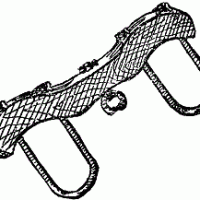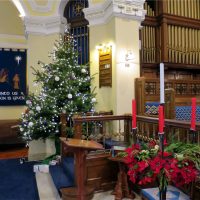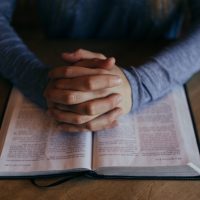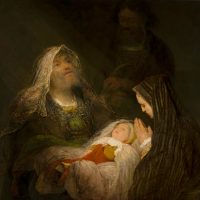Prayers of Approach
O God, creator and sustainer of all life, draw us together today, in the name of your Son, and by the power of your Spirit. Teach us more about you. Help us to celebrate your majesty, and to experience your blessing in our lives.
Lord, you sustain all things, holding creation in your hands. We can only wonder at the power of your Word. We praise you for all you have made, but most of all we praise you for making yourself known to us through Jesus.
We reach out to you as children in need of acceptance, healing and love. Bring us into a stronger relationship with you and with those around us. Let no one stop us from coming to you, Lord, for we are your children. Amen.
Hymn O Lord my God, when I in awesome wonder (How great thou art, R&S 117)
Readings: Genesis 2:18-24
Mark 10:2-16
Introduction
This week’s passages help us to look at relationships between God and his creation, men and women, children and society, and to think about who and what matters to God.
The reading from Genesis is just a part of the story of creation. When we join it, the earth already exists and God has created one man, and other creatures that God invited the man to name. It shows that humans have a special relationship with creation, but we are told that the man remains incomplete until partnered with the woman, and crucially that both are incomplete if they are separated from God, their creator.
In our Gospel reading some Pharisees test Jesus by asking about divorce. In response, Jesus honours the ideal of marriage and the equality of both partners. When the disciples try to stop people bringing children to Jesus, he says that the kingdom of God involves childlike acceptance; they should be allowed to come to him. Jesus’ way is invitational; he invites everyone to come to him and to be shown the love of God.
Hymn Jesus’ hands were kind hands (R&S 197)
Sermon
Today’s readings are all about the relationships between God or Jesus and different groups of people. In Genesis, God cares that one human, alone, is incomplete and so creates animals and a companion. The picture of God creating and man naming the animals portrays a harmonious relationship between God and man. With the arrival of woman, this relationship develops and changes – just as everyone’s relationship with their parents moves on as they mature. Nevertheless, all is still in harmony and there is a sense of ‘rightness’ and completeness. We might say, ‘they were made for each other’.
Similarly, the first part of this week’s Gospel reading underlines the importance of the man/woman relationship. At a time when divorce could be engineered almost at will, and for trivial reasons this was of great significance. Moses had allowed a man simply to write a ‘certificate’ of divorce and send a woman away but in a patriarchal society a woman did not have the same right to divorce her husband. If she could not, for whatever reason, go back to her own family she might be left destitute with no means of support. The only thing she could take with her was the dowry which she had originally brought into the marriage.
Her reputation was also at risk. A completely blameless woman might be seen as being some how at fault because she couldn’t please her husband! From the point of view of 21st century marriage and relationships Jesus’ condemnation of divorce seems rather harsh, possibly trapping people in loveless or even abusive situations. In Jesus’ time however it was revolutionary. It gave the woman equal rights. A man couldn’t just put aside his wife when he felt like it, for no reason other than he had got fed-up of her or found someone else. If he did so and married again he was the one who was in the wrong, he was the one who would be guilty of adultery! Jesus’ judgement values the marriage relationship and the equality of both husband and wife.
Relationships are explored again when children are brought to Jesus. He emphasises the value of women and children in a society where they are often marginalised and tells us that absolutely everyone is important to God. In a reading often used at infant baptisms Jesus welcomes children who are brought to him despite the disciples’ attempts to keep them away. We don’t know the disciples’ reasons for trying to keep the children away but Jesus uses what happened to talk about the kingdom of God belonging to ‘such as these’.
Does he mean here that it belongs to children, or people whose attitudes are like those of children? And, if the latter, what might those characteristics be? Is it that our values and inner attitudes are more important than those often regarded as important by society, e.g. age, education, social status? Or is it that, in mentioning first women and then children, Jesus is drawing attention to those so often marginalised in society? Or is it both? And what can we do about it?
‘Let the little children come to me.’ Try replacing the word ‘children’ with ‘homeless’, ‘depressed’, ‘hurting’, ‘unloved’ and many, many more. Are we doing all that we can to make sure everyone has the opportunity to meet and be welcomed by Jesus?
Hymn Bind us together Lord (MP 54)
Prayers of Intercession
Loving God we bring into your tender care all families in which there is discord. We pray for those who live with tension and distrust, with faithlessness and abuse. Bring healing to broken relationships and reconciliation to those who feel hurt. Help us all to accept the variety of family models which make up our world and not to judge one another.
God of all families, bring wholeness and peace.
Loving God we pray for those who grieve a loved one especially those who have been killed. We remember all those whose loved ones have been victims of street violence. We pray that all people will respect one another and that everyone may be able to walk the streets in safety.
God of all families, bring wholeness and peace.
Loving God, we thank you for the family of nations. We pray for all leaders of government. May they rule in justice and compassion, respect the human rights of their citizens and foster tolerance and peace.
God of all families, bring wholeness and peace.
Loving God we pray for the victims of natural disasters, earthquakes, drought or floods, for all whose lives and well-being have been affected. May your love give peace to those who are suffering and give vision and determination to those who seek to rebuild homes and communities.
God of all families, bring wholeness and peace.
Loving God we pray for all who are sick, especially for those who are suffering from illnesses which could easily be treated if they had access to medical care. We pray for aid workers, care workers and for all health professionals.
God of all families, bring wholeness and peace.
Loving God, unite us as your family: may the stronger offer support, the wealthier share what they have, the church offer hope and all your children live together in peace. God of all, in your name we pray. Amen.
Hymn Now thank we all our God (R&S 72)
Blessing
In this coming week may we hope for the best, believe in the best, and seek to live as if the kingdom has come! May we know that God is with us, that the Lord cares and understands. May we be there for one another, accepting in love, and with grace.
And may the blessing of God, Creator, Redeemer and Sustainer, be with us all, now and evermore. Amen.
Prayers and other material (adapted) © Roots for Churches Ltd. Used by permission.






